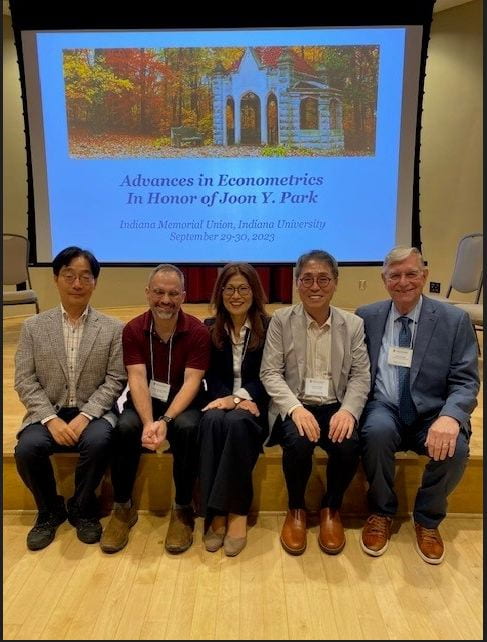The Economics Department wishes to congratulate Professor Klaus Desmet on being selected as a Provost Research Fellowship recipient!
In the fall 2023 semester, the Office of the Provost, in conjunction with the Vice Provost for Research and Chief
Innovation Officer and the University Research Council (URC), selected the recipients of this year’s Provost
Research Fellowship – a $15,000 cash prize designed to provide research support to SMU’s outstanding
scholars during the current academic year.
This fellowship was open to current SMU tenured faculty nominated by their dean or by the Faculty Senate.
Nominated faculty were invited to submit research proposals for review and evaluation by the URC, who then
recommended the most meritorious proposals for final selection by the Office of the Provost.
The following are the 2023-2024 Provost Research Fellows:
Alexandra Pavlakis – Professor, Department of Education Policy & Leadership, Simmons School of
Education & Human Development
Klaus Desmet – Ruth and Kenneth Altshuler Centennial Interdisciplinary Professor, Department of
Economics, Dedman College of Humanities and Sciences
Jennifer Dworak – Associate Director of the SMU AT&T Center for Virtualization and Professor,
Department of Electrical and Computer Engineering, Lyle School of Engineering
David Taylor – Co-Director of the Tsai Center for Law, Science and Innovation and Professor, Dedman
School of Law
James Lee – Professor, Perkins School of Theology



 Assistant Professor Alipio Ferreira received a 2023-2024 University Research Council award. URC research grants fund faculty research across the disciplines. Awards are ranked based on the significance of the proposed research, its value to the University and the career development of the proposer. A brief description of Alipio’s research follows.
Assistant Professor Alipio Ferreira received a 2023-2024 University Research Council award. URC research grants fund faculty research across the disciplines. Awards are ranked based on the significance of the proposed research, its value to the University and the career development of the proposer. A brief description of Alipio’s research follows.



